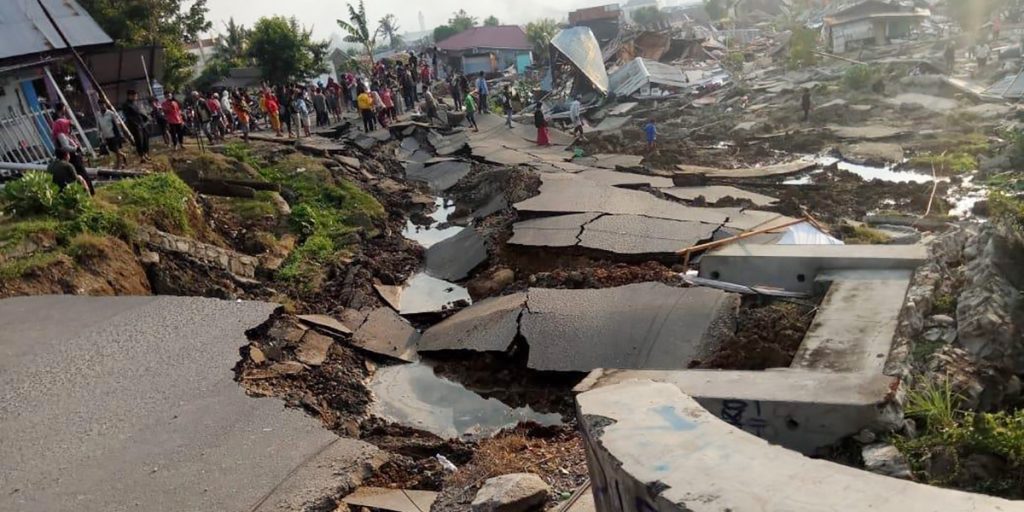“Are we nearing the end of the pandemic? I certainly hope so, but are we prepared for the next crisis? I can pretty much guarantee that when the masks come off and the social distancing stops, the whole country will relax and say ‘whew’ and forget the whole thing”.
“But with my background in insurance and risk management and my experience with public relations, especially after the huge crises Indonesia suffered 20 years ago (Bali bombings, Aceh tsunami, Marriott bombing, Jogja earthquake etc etc) I can tell you we are never prepared enough, and often completely and tragically unready for the disasters that can happen, and suffer unnecessary loss of life, injury and deep emotional stress as a result. Never mind the loss of livelihood and business which are inevitable as well.

But how to be prepared? That is often the question. How to expect the unexpected? Well honestly, nothing, except perhaps alien invasion, is unexpected. Everything else is identifiable and (mostly) manageable or at least assessable.
Crises affecting the travel industry are divided into two categories: natural (avalanche, earthquake, flood, epidemic etc) and man-made (terrorism, crashes, kidnapping, riots etc). Almost everything is able to be anticipated and planned for in some way, preferably through a logical process we call risk management where risks are identified, analysed, planned for, tracked, controlled and of course the results communicated to all possible involved parties.
Now some risks are identified but can’t be adequately controlled, earthquake and tsunami are the saddest examples, where you live knowing that your whole life depends on the actual severity of the event. A 1m tsunami is nasty and damaging, a 20m tsunami, as we had in Aceh, is as impossible to stop as an atomic bomb. A minor earthquake scares us, but a major one brings even the toughest buildings tumbling down.
So we have to be ready, not only for the minor but for the major too, and that is again done logically and methodically through a strict application of four phases: Reduction, detecting early signs and taking mitigating action: Readiness, preparing plans and running practice exercises: Response, actually executing the plans when the crisis hits; and Recovery, how to get back to normal as soon as possible. Each of these has a clear plan of action template and a checklist to be followed, which if done regularly and rigorously will reduce the loss of life and loss of livelihood. But I guarantee very few organisations have these in place and monitored to the extent that is really needed.

Let’s quickly look at the Jogja earthquake of 2006 which had a magnitude of 6.4mw on the Richter Scale. Everyone knew it was inevitable being in the ‘Ring of Fire’ but if it was 3.0mw the damage would have been much less. As it was the construction methods and materials of the local houses resulted in thousands of buildings collapsing and thousands of people dying. Was it possible to anticipate? Yes. But how to mitigate the risk which would literally have meant rebuilding the thousands of fragile homes.
Now that’s what happened after the quake, the houses were rebuilt with private and government assistance so the question is: should that not be part of the whole country’s ‘identify and reduce’ risk program? I say ‘yes’ but governments rarely have preventative programs, only rescue programs. Sad but true.
But here’s the saddest part: I visited the Jogja tourism industry under a Ministry of Tourism initiative one year after the earthquake and gathered together the leaders of local industry. And I asked them: hotel GM’s & owners, park operators, restaurants etc, if they had a current, up to date crisis management plan. Not one had one. A year after 5,700 people died, 130,000 were injured, and 650,000 displaced, no-one was prepared for the next disaster. And that’s where we are today.
We have had terrorism kill our people and our tourism industry, floods destroy our property and our lives, avalanches sweep away our villages, eruptions wipe out tourism – even without actual danger – bird flu, pig flu, cholera and typhoid, scare away our visitors, and now covid-19 bringing tourism to a standstill, but I am sure 90% of the industry is today unprepared for the next crisis. Only those mandated by international shareholders or stock exchange regulations are ready.
Why? Because it won’t happen to us. But it will.







